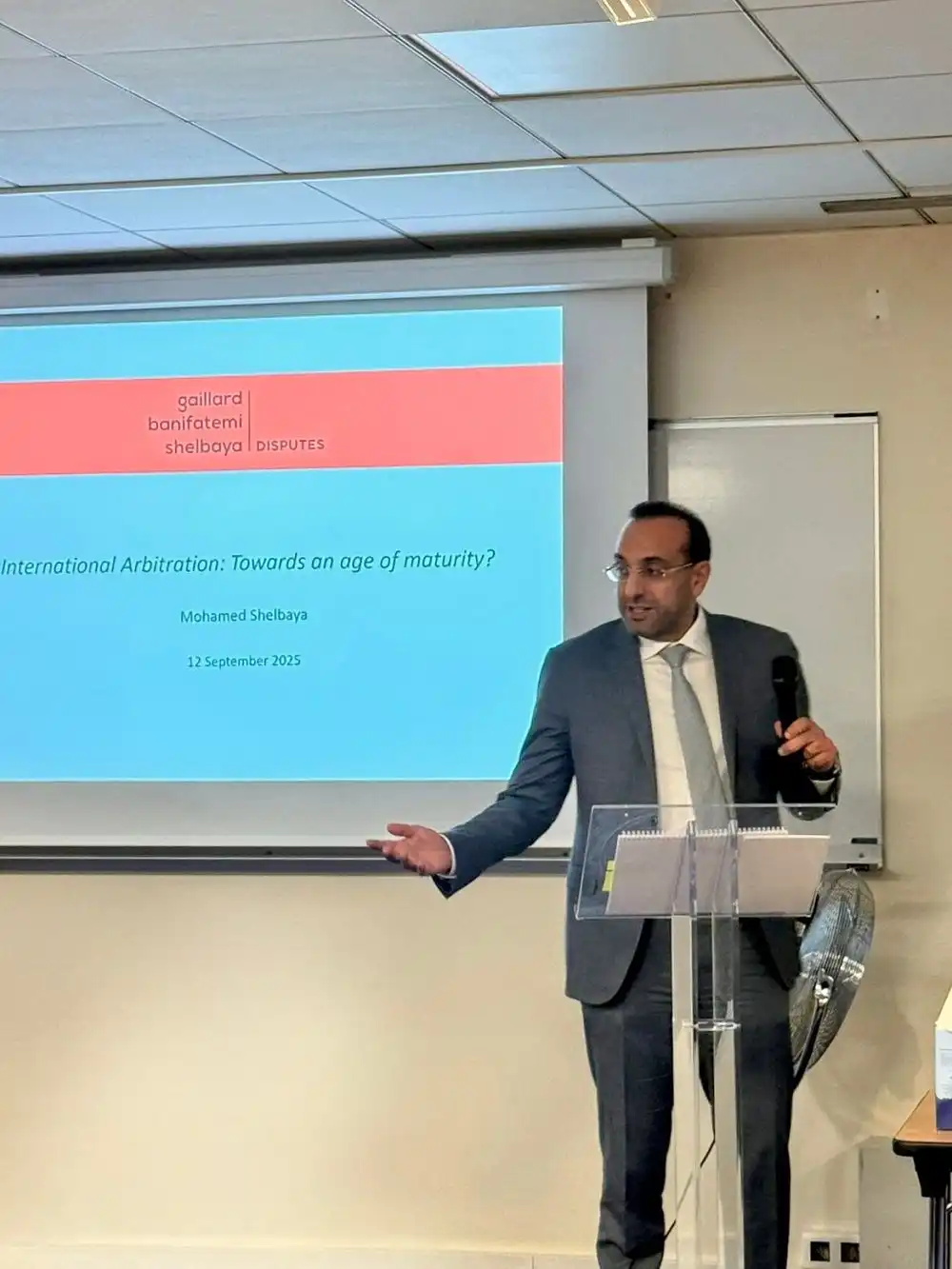Home>TADS LLM 2026 Commencement Ceremony: Mohamed Shelbaya Explores the Evolution of International Arbitration
22.09.2025
TADS LLM 2026 Commencement Ceremony: Mohamed Shelbaya Explores the Evolution of International Arbitration

The Commencement Ceremony of the TADS LLM was organised by Sciences Po Law School on 12 September 2025. It began by TADS Advisor Paula Eiben Działoszyńska honouring the graduating class of 2025 and the incoming class of 2026, followed by presentation of the Faculty Distinction Award to Daniel Enrique Orozco Macías of the graduating batch by Professor Brooke Marshall. This was in recognition of his academic distinction during the TADS LLM 2024-25.
Commencement Address delivered by Mohamed Shelbaya on "International Arbitration: Towards an Age of Maturity?", with an introduction by the Director of the TADS LLM, Professor Diego P. Fernández Arroyo.
Mohamed Shelbaya of GBS Disputes discussed the evolution of both international commercial and investment arbitration, taking the audience on a riveting journey from their infancy through adolescence to maturity. The evolution of international commercial arbitration was presented through the lens of treatment of applicable law by arbitral tribunals and treatment of arbitral awards by national courts. He talked about its infancy phase defined by distrust of the system due to differing standards adapted by state courts for review of awards. Special emphasis was placed on the adolescence phase with the establishment of the enforcement regime pioneered by the New York Convention of 1958 and the widespread adoption of the UNCITRAL Model Law by many States. The maturity phase was defined by adoption of red flags and circumstantial evidence in respect of corruption issues in international arbitration and de novo review standards in matters of public policy.
The evolution of international investment arbitration was presented as an answer to the inherent limits of diplomatic protection. Mr. Shelbaya examined the exponential growth of Bilateral Investment Treaties (BITs) and the broadening of standards of treatment in the adolescence phase (1990-2009). He also discussed the stabilisation of the global investment treaty network and the adoption of balanced definitions of standards of treatment in the maturity phase (2010-2025). He spoke about the tribunal-led evolution of the protection standards from their initial broad nature to their rationalization - linking of the Fair and Equitable Treatment (FET) standard to the concept of legitimate expectations, narrowing of the scope of indirect expropriation and rationalization of the Most Favored Nation (MFN) clause as applicable to concrete treatment as opposed to abstract rights.
In summary, Mr. Shelbaya submitted that the evolution of international arbitration is akin to a pendulum - with infancy at one end (“Thesis”), adolescence at the other (“Antithesis”) and Maturity as the quintessential balance (“Synthesis”). He ended by recognizing this Synthesis as a sign of arbitral maturity and of the international arbitration system achieving a certain balance while ending with a caveat regarding the arbitral pendulum swinging back to its restrictive past by citing adoption of self-judging Essential Security Interest (ESI) clauses in a growing number of BITs the world over.
This landmark event was made possible by the initiative and effort of the Managing Director of the TADS LLM Kyle Schneider, Special Advisor on Professional Development Liana H. Cercel, Special Advisor on Academic Development Paula Eiben-Dzialoszynska and Academic Assistant Sarah Louhichi under the leadership of the Director of the TADS LLM, Professor Diego P. Fernández Arroyo.
Report by Yash Saxena.